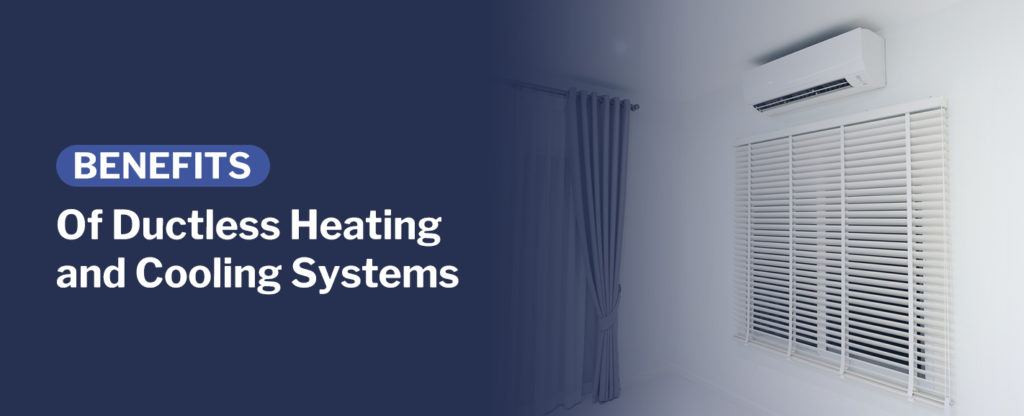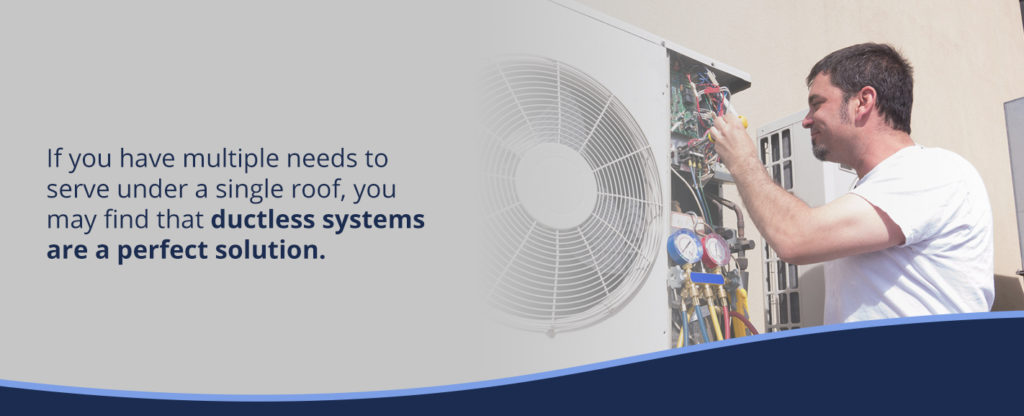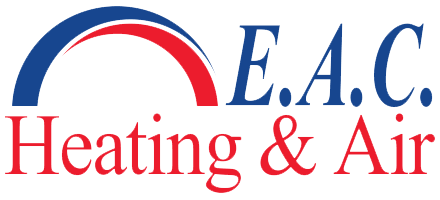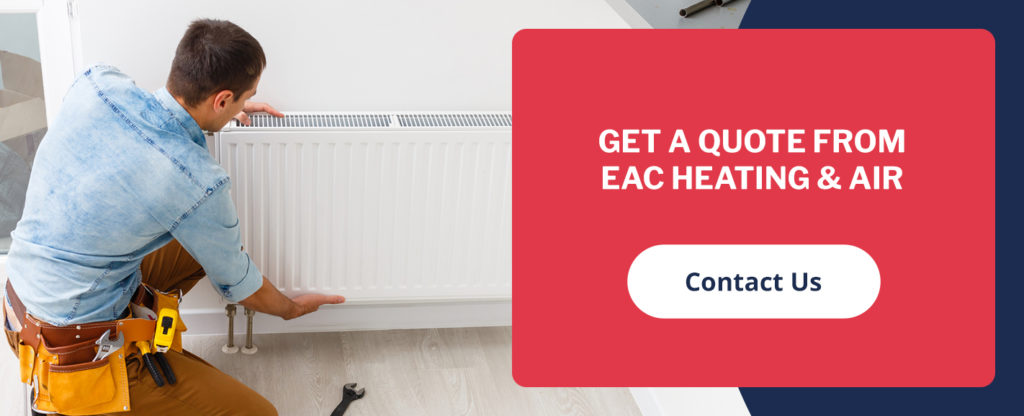
Heating and cooling your home can sometimes feel like a constant tug of war. On one side — comfort. On the other — utility costs and debates about the ideal temperature.
Ductless systems can provide a balanced solution for both sides of the equation. Efficient, flexible and easy to install, they offer the ability to customize them to fit your needs. Whether you’re deciding how to outfit your new home or looking to update the one you have, ductless heating and cooling are worth considering. Let’s talk more about what they are and what they offer over traditional HVAC systems.
What Are Ductless Heating Systems?
Just as the name indicates, a ductless heating system or ductless heat pump is a type of heating system that moves warm air without using ducts.
The system uses two components — an outdoor compressor unit to generate heat and indoor handling units to deliver the warm air inside. The compressor unit contains a heat exchanger coil that condenses the refrigerant inside. This process releases heat that the refrigerant has absorbed, and the compressor then pumps that heat into the house. Indoor handling units are typically mounted high on an interior wall, with the compressor unit on the exterior side of the wall. The two components are connected through a small hole.
The system can be either single-zone or multi-zone based on the number of indoor handling units. Single-zone systems are best if you have a small home or an open-concept design. Multi-zone systems are a better choice if your house is larger or if rooms are individually enclosed. Both systems use the same type of compressor units, though the units for multi-zone systems are typically larger.
There are two main types of heat pumps — air-source pumps that absorb heat from the air and geothermal or ground-source pumps that absorb heat from the ground. An air-source pump is easy to install, and ductless mini-split systems avoid the 30% of energy efficiency lost through ductwork. While geothermal pumps have a longer installation time, they can reduce your energy use by 30%-60%.
What Are Ductless Cooling Systems?
Ductless systems are an efficient choice because they can provide both heating and cooling. Along with the condenser, a compressor unit contains a second heat exchanger coil that evaporates the refrigerant. As the refrigerant cycles through evaporating and condensing, the coil absorbs the heat around it, leaving cooler air that the compressor pumps inside.
Other ductless HVAC systems also work using the same or similar principles. Traditional window air conditioners contain everything packaged into a single unit. However, they typically only cool and cannot heat.
Cassette air conditioners are another option for ductless cooling. Like mini-split systems, they use both an outdoor and indoor unit to collect and distribute the cool air. While mini-split systems and window units involve bulky indoor units, however, cassette units are concealed in the ceiling overhead.
Because they run so quietly and provide such efficient cooling for larger spaces, you’ll often find them in large buildings, offices and warehouses. A cassette air conditioner can be an efficient choice if you have a larger home, especially one with an open floor plan.
You can also use ductless cooling systems to supplement your ducted air conditioning. For areas of your home that are difficult to cool, like an attic or a room with a bank of south-facing windows, adding ductless cooling to your existing system may be the solution. A hybrid system can also be a lifesaver for people whose families prefer temperatures at the opposite ends of the thermometer.

Advantages of Ductless Heating and Cooling Systems
The benefits of ductless heating systems and the benefits of ductless cooling systems go hand-in-hand. If you have multiple needs to serve under a single roof, you may find that ductless systems are a perfect solution. They offer an array of advantages, such as:
- Greater efficiency: Ductless systems have compressors that run faster or more slowly based on the system’s needs. Because they keep running at lower levels, they save the considerable energy output required to restart the compressor. Heat pumps have a longer lifespan than other heating and cooling systems. They also combine heating, cooling and dehumidifying into a single machine. Installation, maintenance and operating costs are all limited to one unit rather than spread out over three.
- Reduced operating costs: Heat pumps use less energy than heating and cooling systems like furnaces or central air conditioning. In fact, heat pumps produce more energy than they consume. Additionally, choosing an ENERGY STAR® model may qualify you for a federal tax credit. Depending on your local utility’s available programs, you might also be eligible for utility incentives.
- Improved air quality: Because air ducts are so difficult to access and clean, they’re an area homeowners often overlook. If left uncleaned, ducts circulate dust throughout your home. In severe cases, they may also be dispersing mold spores and residue from animal droppings. These air contaminants can aggravate allergies, asthma and other respiratory conditions. Ductless systems, however, use accessible and easily-changed filters. You can use the filters that come with the system or replace them with HEPA filters for the best air filtration.
- Better humidity control: Heat pumps double as home dehumidifiers in warm weather as a natural side-effect of the cooling process. As the gas refrigerant cools and becomes liquid, the drop in temperature causes the ambient water in the air to do the same. Reduced humidity makes the air feel cooler, so you can stay comfortable without spending more to lower the temperature. Heat pumps also come with a drying mode that maintains the relative humidity at your preferred setting.
- Greater flexibility: Ductless systems let you heat or cool rooms individually instead of choosing a single setting for your entire house. The ability to customize the temperature for different rooms can eliminate bickering over the thermostat. If you’re working on downsizing your energy use in a larger home, adding on a ductless system will allow you to focus temperature control on the rooms you use most. Conversely, if you have a new addition, a heat pump is a much more cost-effective option than extending the ductwork.
Get a Quote From E.A.C. Heating & Air
At family-owned and operated E.A.C. Heating & Air we’ve been using our industry experience and product knowledge to serve Beaufort County, South Carolina and the surrounding areas since 1981. Our technicians will help you custom-design a system to suit your needs, and our fully trained and certified contractors are available for 24/7 emergency service.
If you’re ready to add a ductless system to your home, or if you want to talk with a trusted professional about your options, E.A.C. Heating & Air is here for you. Contact us for a quote today!

